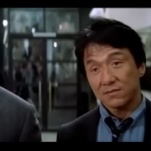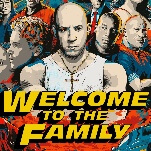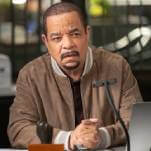My life is not horrible. I’m an American college student. Compared to most people in the world, I’m pretty well-off. I go to college in Bellingham, Washington—the weed is awesome, the weather is great, and there are lots of hot guys. Score! But! I’m a homo. And I didn’t know how horrible my life was until I got here…
It seems like every gay/queer person who is involved in anything gay/queer on campus has this idea that gay people are SO oppressed that we need to constantly discuss it and feel like victims. Don’t get me wrong: We are a ways away from equality, and I recognize this. But it seems like the constant thread on college campuses for queers—other than talking about Lady Gaga or sucking dick—is complaining about how oppressed queer people are.
How do I respectfully say, “STFU, we’re doing just fine, you white, upper-class American kids” without sounding like an insensitive assdouche?
MG
You know, when I came out to my parents in 1981ishwhateversomething, telling my mom and dad that I was gay didn’t just mean telling them I liked to kissandotherstuff boys. It meant telling them I would never marry, never have children, and never be a Marine. Or at least that’s what I thought I was telling them. But here we are, three short decades later, and I’m married. And I have a child. And now I can be a Marine. (Not that I want to be a Marine—well, not anymore. After seeing a pic of a shirtless Navy SEAL in last week’s New York Times, I want to be a Navy SEAL.)
And I live in Seattle, where the weed is awesome (I’m told), the weather is great (if you like to snowboard), and the boy I marriedandkissandotherstuff is a lotta hot guy all by himself.
I agree with you, MG. Things are good. Things have gotten better—and not just for me.
But we have work left to do. We have our full civil equality to secure, homo- and transphobic violence to confront, bigoted lawmakers to defeat. (Hey there, Rick!) But the discrimination and challenges we face shouldn’t prevent us from appreciating the good things. Yes, it has gotten better. That doesn’t mean we can ignore the bashings and outrages and tragedies. But we shouldn’t be so in love with our victimization—or so insecure about our progress—that we can’t acknowledge the triumphs and joys and Navy SEALs.
So I’m with you, MG—up to a point.
I disagree about the STFU part. You don’t have to hang out with the kind of LGBT activists who aren’t capable of fighting the good fight—fighting for their civil equality and mine and yours—while also appreciating all the good things about their lives. Not all LGBT activists are humorless scolds. Some are, for sure (and they tend to be overrepresented on college campuses), but there are plenty of people out there who can organize a protest one night and a good party the next.
Guys like you and me, MG, people who have it pretty good, have to remember that there are LGBT folks out there who have it lousy and not all of them are in a position to speak up for themselves. Let me see if I can think of an example… okay: There are bullied and isolated and abused LGBT kids out there who don’t live in places like Bellingham or Seattle, who don’t have the love and support of their parents, and who aren’t “doing fine.” If we don’t speak up for isolated and bullied LGBT kids, who will? (For the record: There are lots and lots and lots of loved and accepted LGBT kids out there, too—not all LGBT kids are miserable—who are doing fine and fighting for their own rights and the rights of other LGBT kids.)
We don’t have to mope. We don’t have to pretend that we feel oppressed 24/7. And we don’t have to attend pointless queer events that are run by LGBT whiners who mistake wallowing in self-pity for activism. You’ll find, once you get out of college, that most of us aren’t moping, pretending, or attending. Most of us are getting on with our lives and doing fine.
But, again, not all LGBT people are doing fine, MG, just as not all LGBT people are white or upper-class or in college or lucky enough to live in Bellingham. If you’re in a position to do something, MG, you should. You don’t have to do everything. Make your contribution. It doesn’t have to take over your life, and you don’t have to pretend to be any more oppressed than you actually are. But you should do something.
Remember: The only thing more annoying than a whiny, college-age queer with a persecution complex is a smug, college-age queer who takes his good fortune for granted and couldn’t give a shit about other people because, hey, he’s got his (his weed, his boys, his education).
I’m a 26-year-old lady who just broke up with a man I thought I wanted to marry. We had incredible, playful sex, were very kind to each other, are both a little queer, and share many interests in spite of our 20-year age difference.
Six months into our relationship, I moved to a bigger city four hours away, and we could see each other only every other weekend. Because of our careers, it wouldn’t be possible for us to live in the same place again for at least two or three years, maybe more. That was one reason I broke up with him. I also feared that he needed to be with a man—even though he loves me to sit on his face. He’s definitely bi, but he’s never been with a man. I am, too, but having had girlfriends makes me comfortable knowing that I mostly want to be with men. Part of me is excited to be free to explore my new city on my own and trusts I made a mature decision. Part of me thinks I really fucked up to let go of a kind, fun—if slightly flawed (but they all are)—relationship. What do you think?
Drowning My Sorrows In Glee
I think it’s a wonderful thing to be 26, bi, single, employed, and living in a big city. I think that a guy who’s single, bi, and amazing in bed at 46 is likely to be single, bi, and amazing in bed at 48. (No guarantees, of course.) You should enjoy the next couple of years, DMSIG, and then revisit the issue of Mr. Wonderful if and when you two or circumstances conspire to put you in the same place again.
I have to take you to task for your answer to Sent From My iPhone. In your answer, you compared condoms and withdrawal as methods of birth control. As a former Planned Parenthood volunteer educator, I will tell you that, like withdrawal, condoms alone are NEVER a recommended form of birth control. To compare these two “methods” is a little irresponsible. In fact, condoms alone weren’t even on our list of birth control methods. The good news is that condoms PLUS spermicide were on that list. When used together and properly, condoms and spermicide are almost as effective as the pill in preventing pregnancy.Loud Mouth About Birth Control
Thanks for sharing, LMABC.
Find the
Savage Lovecast (my weekly podcast) every Tuesday at
thestranger.com/savage. Got problems?
[email protected]








































